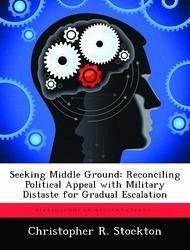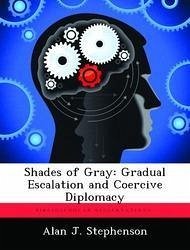Nicht lieferbar

Seeking Middle Ground: Reconciling Political Appeal with Military Distaste for Gradual Escalation
Versandkostenfrei!
Nicht lieferbar
The Vietnam War and Operation Allied Force are two examples of coercive strategy characterized by gradual escalation of violence. They both involved significant discord between policymakers and the military leaders called upon to execute the strategy; they stand in stark contrast to Operation Desert Storm, where gradualism was not used and in which there was apparently much greater harmony and integration. This monograph explores the sources of that tension, assesses their compatibility, and proposes some measures to aid the reconciliation. The problem is significant. All of the trends apparen...
The Vietnam War and Operation Allied Force are two examples of coercive strategy characterized by gradual escalation of violence. They both involved significant discord between policymakers and the military leaders called upon to execute the strategy; they stand in stark contrast to Operation Desert Storm, where gradualism was not used and in which there was apparently much greater harmony and integration. This monograph explores the sources of that tension, assesses their compatibility, and proposes some measures to aid the reconciliation. The problem is significant. All of the trends apparent in today's security environment (globalization, ambiguity, reduced time, etc.) drive toward ad hoc coalitions which respond to crises that challenge, not a state's existence or well-being, but its values and idealism. In such an environment, coercion plays an important role in international relations. As coercion and gradualism increase in appeal and likelihood, awareness and reconciliation of the different ways actors in the national security process view them become more important. A broad review of the Vietnam War, Operation Desert Storm, and Operation Allied Force, coupled with careful attention to terminology and definitions, provides the foundation for the discussion. Standards and criteria are proposed which encompass both the objective and subjective nature of policy analysis. Four relevant viewpoints are identified (those of the academic, warrior, diplomat, and politician) and explored in depth. The criteria are applied to coercion and gradualism as each actor views them to assess their utility and attractiveness. This analysis highlights differences which contribute to tension in policy formulation and execution. The monograph integrates these various outlooks by proposing a conceptual model-that of a pole-vaulter's "high-bar"-within which they might all operate. It has additional utility in visualizing all actions by each instrument of power and their gross effect








